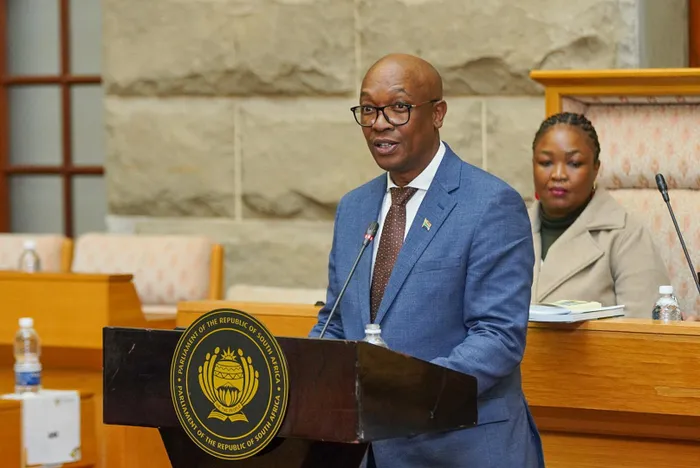South Africa continues to press the US for trade deal, says Parks Tau

File photo ofTrade, Industry and Competition Minister Parks Tau.
Image: GCIS
South Africa continued to work tirelessly discussing with its counterparts in the US to keep the trade route open and having submitted the Framework Deal in May, South Africa has signed a condition precedent document with the office of the US Trade Representative, a precursor to finalisation of the negotiations, Minister of Trade, Industry and Competition Parks Tau said in his budget vote.
Tau said the collective work of business, organised labour and civil society, in engaging the US Congress is also a key lever in South Africa's toolkit in its approach to ensuring the continued inclusion of South Africa in the Africa Growth and Opportunity Act and to respond to the recently proposed US-South Africa Bilateral Relations Review Act.
"Our active engagements with Asia are significantly bearing fruit. We have advanced conversations with China on Green Industrialisation and deepening our industrial supply chains. We have also committed to working with them to beneficiate our critical minerals here at source. This will unlock value in our Special Economic Zones (SEZs) and Industrial Parks as we agree that these dynamic strategic nodes in our country are best placed to drive our reindustrialisation agenda." Tau said.
He said the government was also reinvigorating its relationship with Japan through InvestSA and the Japan External Trade Organisation (JETRO).
As the looming Carbon Border Adjustment Mechanism (CBAM) alone has the potential to create an almost 1% contraction in GDP on the African continent, South Africa remains firm that the multilateral trading system with the World Trade Organisation and the United Nations at their core, must be preserved until all member states are able to reach their developmental goals, he said.
"This is the message we will take to the 14th Ministerial Conference in Cameroon next year. Our announcement on the Clean Trade and Investment Partnership (CTIP) with the EU in March, is to be welcomed by our provinces and municipalities. For one, CTIP will enable us to execute our decarbonisation agenda and maximise the R90 billion facilitation funding that has been initially committed," Tau said.
Deputy Minister for the Department of Trade, Industry (Dtic) and Competition Zuko Godlimpi said to support and accelerate the participation of black industrialist in the economy, the Industrial Development Corporation (IDC) had in 2025/2026 revised its commitment to a total of R12 billion towards transformation focused funding.
Godlimpi said R7.4bn was earmarked for black industrialists, R3.5bn for women-owned businesses and R1.5bn for youth-led enterprises in efforts aspired to reflect a deliberate strategy to transform the ownership and control of productive assets in the economy.
"In KwaZulu-Natal, the IDC is supporting SME canegrowers and supporting avocado producers link to export markets. In the North West, a second round of funding is being prepared for black grain producers. In the Eastern Cape we are advancing green hydrogen and agro processing through partnership with local industry to respond better to global market conditions," Godlimpi said.
He said other highlights included that in the Free State there was a programme of revitalising the agri infrastructure with the provincial government, in Gauteng through supplier development, business referrals are fueling a strong pipeline for transformative funding, whilst in the Western Cape, there was support for black industrialists in poultry, plastics and solar installations.
"In Limpopo, we have a proposed R50 million farming aggregator funding, which is expected to create 400 jobs. In Mpumalanga, the IDC is backing green hydrogen and biofuels brick making and furniture making, with plans afoot for the establishment of a Special Economic Zone," Godlimpi said.
He said on the part of the Dtic, out of its R11bn, up from R9.6bn in the 2024/2025 year, 35.15% of the total budget goes to business incentives while infrastructure investments are apportioned 10.2% amounting to R5.2bn investment in the incentive programme.
BUSINESS REPORT